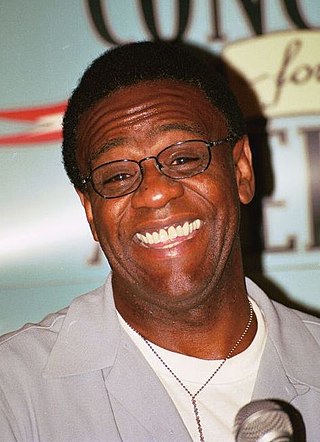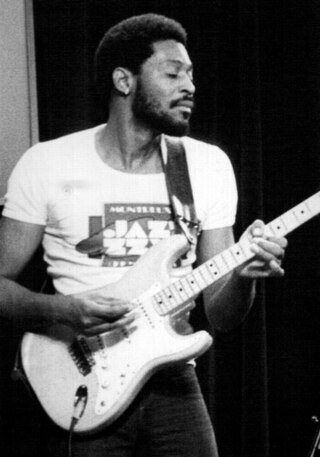
Albert Leornes Greene, known professionally as Al Green, is an American singer, songwriter, pastor and record producer best known for recording a series of soul hit singles in the early 1970s, including "Take Me to the River", "Tired of Being Alone", "I'm Still in Love with You", "Love and Happiness", and his signature song, "Let's Stay Together". After his girlfriend died by suicide, Green became an ordained pastor and turned to gospel music. He later returned to secular music.

Lucinda Gayl Williams is an American singer-songwriter and a solo guitarist. She recorded her first two albums, Ramblin' on My Mind (1979) and Happy Woman Blues (1980), in a traditional country and blues style that received critical praise but little public or radio attention. In 1988, she released her third album, Lucinda Williams, to widespread critical acclaim. Regarded as "an Americana classic", the album also features "Passionate Kisses", a song later recorded by Mary Chapin Carpenter for her 1992 album Come On Come On, which garnered Williams her first Grammy Award for Best Country Song in 1994. Known for working slowly, Williams released her fourth album, Sweet Old World, four years later in 1992. Sweet Old World was met with further critical acclaim, and was voted the 11th best album of 1992 in The Village Voice's Pazz & Jop, an annual poll of prominent music critics. Robert Christgau, the poll's creator, ranked it 6th on his own year-end list, later writing that the album, as well as Lucinda Williams, were "gorgeous, flawless, brilliant".
June Deniece Williams is an American singer. She has been described as "one of the great soul voices" by the BBC. She is best known for the songs "Free", "Silly", "It's Gonna Take a Miracle" and two Billboard Hot 100 No.1 singles "Let's Hear It for the Boy" and "Too Much, Too Little, Too Late". Williams has won four Grammys with twelve nominations altogether. She is also known for recording “Without Us”, the theme song of Family Ties.

There Will Be a Light is a gospel album by Ben Harper and The Blind Boys of Alabama, released in 2004. It is Harper's sixth album.

Blind Willie Johnson was an American gospel blues singer, guitarist and evangelist. His landmark recordings completed between 1927 and 1930—thirty songs in total—display a combination of powerful "chest voice" singing, slide guitar skills, and originality that has influenced generations of musicians. Even though Johnson's records sold well, as a street performer and preacher, he had little wealth in his lifetime. His life was poorly documented, but over time, music historians such as Samuel Charters have uncovered more about Johnson and his five recording sessions.

The Blind Boys of Alabama, also billed as The Five Blind Boys of Alabama, and Clarence Fountain and the Blind Boys of Alabama, is an American gospel group. The group was founded in 1939 in Talladega, Alabama, and has featured a changing roster of musicians over its history, the majority of whom are or were vision impaired.

John Leventhal is a musician, producer, songwriter, and recording engineer who has produced albums for William Bell, The Blind Boys of Alabama, Michelle Branch, Rosanne Cash, Marc Cohn, Shawn Colvin, Sarah Jarosz, Rodney Crowell, Jim Lauderdale, Joan Osborne, Loudon Wainwright III and The Wreckers. He has won six Grammy Awards.
The Fairfield Four is an American gospel group that has existed for over 100 years, starting as a trio in the Fairfield Baptist Church, Nashville, Tennessee, in 1921. They were designated as National Heritage Fellows in 1989 by the National Endowment for the Arts, which is the United States government's highest honor in the folk and traditional arts. The group won the 1998 Grammy for Best Traditional Soul Gospel Album. As a quintet, they featured briefly in the 2000 movie O Brother, Where Art Thou?.

Gotta Serve Somebody: The Gospel Songs of Bob Dylan is a tribute album independently produced by Jeffrey Gaskill of Burning Rose Productions, Ltd. and released under license on the Sony/Columbia label in 2003. The compilation features traditional and contemporary gospel singers performing songs written by Bob Dylan during his "born again" period (1979–81).

"It's Nobody's Fault but Mine" or "Nobody's Fault but Mine" is a song first recorded by gospel blues artist Blind Willie Johnson in 1927. It is a solo performance with Johnson singing and playing slide guitar. The song has been interpreted and recorded by numerous musicians in a variety of styles, including Led Zeppelin on their 1976 album Presence.

Cash McCall was an American electric blues guitarist, singer and songwriter. He was best known for his 1966 R&B hit "When You Wake Up". Over his long career, his musical style evolved from gospel music to soul music to the blues.

The Soul of a Man is an album of "twenty haunting spiritual blues songs" recorded in the late 1920s and 1930 by the American gospel blues singer and guitarist Blind Willie Johnson that was released by Charly Records in 2003.
"Keep Your Lamp(s) Trimmed and Burning" is a traditional gospel blues song. It alludes to the Parable of the Wise and Foolish Virgins, found in the Gospel of Matthew at 25:1-13, and also to a verse in the Gospel of Luke, at 12:35.

"Bye and Bye We're (or, I'm) Going to See the King" is a Christian song from the African-American musical tradition. It is known by a variety of titles, including "I Wouldn't Mind Dying (If Dying Was All)" and "A Mother's Last Word to Her Daughter". It was recorded seven times before 1930, using the preceding titles.

"God Don't Never Change" is a gospel blues song recorded by Blind Willie Johnson in 1929. The song is sometimes titled "God Don't Ever Change".
"Trouble Will Soon Be Over" is a traditional gospel blues song recorded in 1929 by Blind Willie Johnson and Willie B. Harris, who is thought to have been his first wife.

"Leave It There" is a Christian hymn composed in 1916 by African-American Methodist minister Charles A. Tindley. It has become popular enough to have been included in 12 hymnals; and even to be attributed to "traditional" or "anonymous". The title is sometimes given as "Take Your Burden to the Lord and Leave It There" or as "Take Your Burden to the Lord" or as "Take Your Burden", words taken from the song's refrain; the plurals "burdens" and "them" are sometimes used, and "God" instead of "the Lord":

The Complete Blind Willie Johnson is a compilation album of all the known recordings by American gospel blues singer-guitarist Blind Willie Johnson. As part of the Roots N' Blues series, it was released jointly by Columbia Records and Legacy Recordings, on April 27, 1993. All of the tracks on the two-compact disc set were originally issued by Columbia on the then-standard two-sided 78 rpm record format.

American Epic: The Best of Blind Willie Johnson is a compilation album released to accompany the award-winning American Epic documentary film series. It collects performances from Blind Willie Johnson's five recording sessions for Columbia Records in Dallas, Atlanta, and New Orleans between 1927 and 1930. The album was released as a 16-track download and a vinyl LP.















